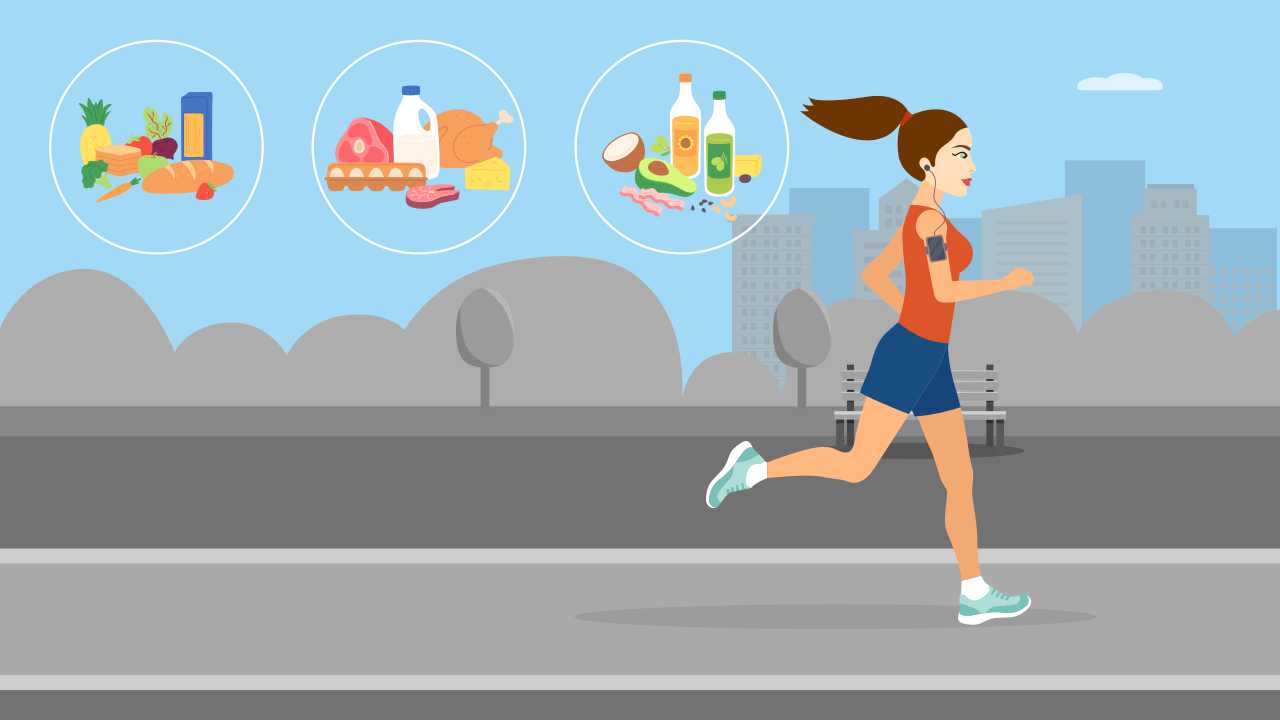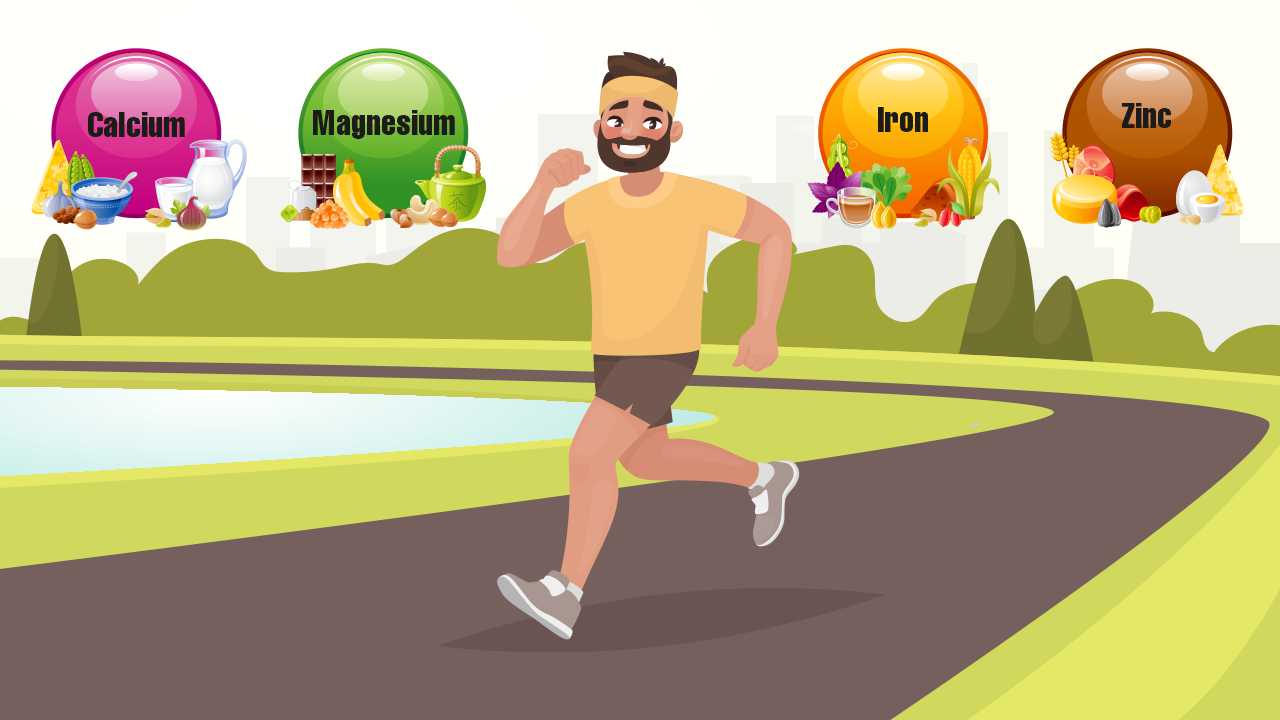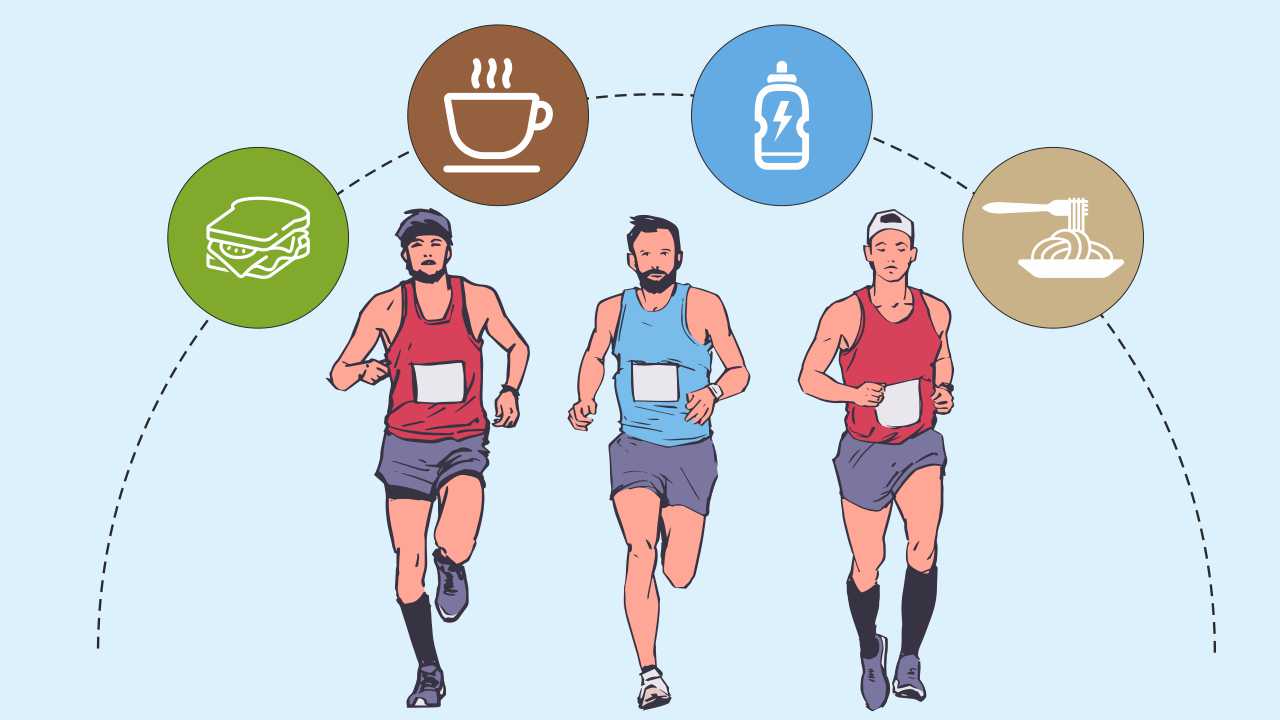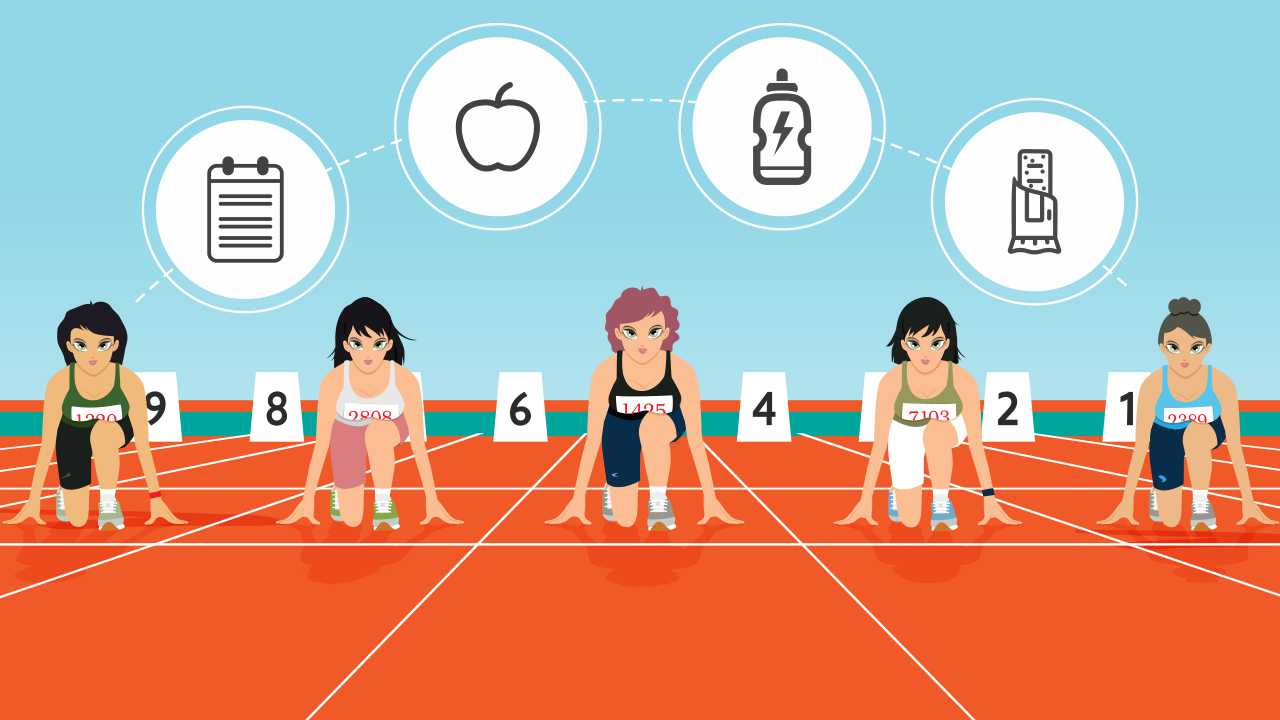
Nutrient-timing: How to Strategize Fueling before a Race
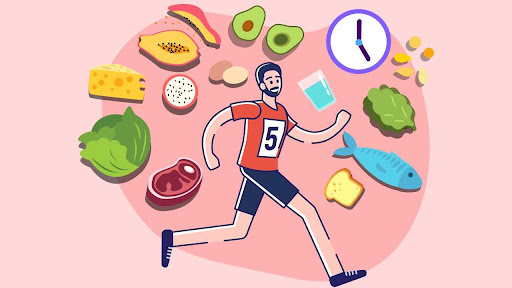
Nutrient-timing refers to eating certain macronutrients in specific quantities at particular times before, during, and after endurance events or key training sessions. Consuming the major running nutrients has a considerable effect on your health, performance, recovery, and fat loss.
Stated simply, proponents of nutrient-timing claim that it enhances performance, recovery, and muscle tissue repair. So, this can be an important point to consider if you are seeking a competitive edge apart from upgrading your running skills through training.
Nutrient-timing is only appropriate for you if you are an endurance athlete who has already attained an elevated level of physical fitness and are adhering to a healthy diet that supports your body composition and athletic performance. Nutrient-timing will not be beneficial if you have not yet mastered your overall caloric and macronutrient intake.
Phase-wise nutrient-timing plan
If you are a marathon runner, you require increased fluid intake to replace sweat losses and more energy to fuel exercise. A well-designed eating and hydration plan combined with an appropriate training program and adequate recovery can lead to peak athletic performance.
Here are a few ideas that you may consider implementing before, during, and after the marathon.
| Strategy | Timing | Amount of carbohydrate |
| Event preparation Carbohydrate-loading for events lasting longer than 90 minutes | 36-48 hours before the event or key training session | 10g–12g per kg of body weight per day |
| Pre-event fueling | 1-4 hours before exercise | 1g–4g per kg of body weight |
1. Recommended pre-marathon approach
Carbohydrates are the most important nutrient in a marathon runner’s diet. So as an endurance runner, you need to consistently consume a high-carbohydrate diet, which is about 8g to 12g per kg of body weight per day. For instance, if you weigh 70kg, your carbohydrate requirement equates to anywhere in the range of 560g-840g per day. If your events and training sessions last longer than 90 minutes, it is advisable to raise your daily carbohydrate intake to 10g to 12g per kg of body weight for 36 to 48 hours leading up to the event. In addition, consume 1g-4g of carbohydrate per kg of body weight one to four hours before exercise.
In the week leading up to race day, consider following this three-stage carbohydrate-loading regime.
Also read: Carbohydrate-loading for a Marathon: A Step-by-step Guide
Stage 1
It is the glycogen-depletion stage. During this period, you perform moderate-to-high-intensity exercises while eating a low-to-moderate carbohydrate diet, which is typically less than 55% of the total calorie consumption. The goal of this stage is to deplete the glycogen stores in the muscles. This phase is from the first day to the third day of the seven-day protocol.
Stage 2
It is the glycogen-loading stage. During this duration, you need to increase your carbohydrate consumption to 70% or more of the total calorie intake and decrease your exercise load to low-intensity, short-duration workouts. This stage is from the fourth day to the sixth day of the seven-day protocol.
Also read: Race Week Nutrition: Dos and Don’ts to Follow
Stage 3
Finally, day seven is race day. The last pre-event meal, which is usually the dinner before the marathon next morning, should contain more than 80% of calories from carbohydrates.
2. What to do during the marathon
Many people struggle with the concept of fueling during long-distance runs and events when they first start to train for marathons. Gastrointestinal distress may be a concern and some people do not feel like eating. But providing fuel during a marathon is essential. The goal of fueling during exercise is to provide the body with the nutrients needed by the muscle cells and to maintain optimal blood glucose levels.
It is suggested to consume approximately 30g-60g of carbohydrates per hour that you run. So, if it takes you three hours to complete a run, have 90g-180g of carbohydrates during the event. If you are running in extreme heat or cold or at a high altitude, your intake of carbohydrates must be towards the higher limit of the prescribed range. This also holds true if you did not consume enough food or fluids or did not do carbohydrate-loading prior to the run.
Begin consuming carbohydrates early on during the event in small amounts after every 15 to 20 minutes instead of eating them all at once later or as you start to feel fatigued. So if you are planning to run the marathon in three hours and begin refueling at the 20-minute mark and every 20 minutes thereafter, consuming around 15g of carbohydrates at each interval would indicate that you will intake 120g of carbohydrates throughout the run. You can adjust the amount of carbohydrates in each snack to accomplish your goal where you should arrive through trial and error during your training.
3. Post-marathon suggestions
After the run, your objectives must be to replenish tapped glycogen stores by consuming carbohydrates and facilitate muscle through protein intake. The best post-workout meals are high in carbohydrates and include some amount of protein. For example, the meal may contain 1g of carbohydrate and 0.5g of protein per kg of body weight.
Then, after the initial meal, eat a similar meal every two hours for four to six hours. Post that, you can return to your usual healthy and balanced diet.
Training for a marathon is certainly overwhelming and daunting. Adopting these strategies during different training phases will prove fruitful in the long run.
References
1. Thomas DT, Erdman KA, Burke LM. American College of Sports Medicine Joint Position Statement. Nutrition and Athletic Performance. Med Sci Sports Exerc 2016; 48: 543–68.
2. Ivy JL, Goforth HW Jr, Damon BM, et al. Early postexercise muscle glycogen recovery is enhanced with a carbohydrate-protein supplement. J Appl Physiol 2002; 93: 1337–44.
3. Kerksick CM, Wilborn CD, Roberts, MD, et al. ISSN exercise & sport nutrition review update: Research & recommendations. J Int Soc Sports Nutr 2018; 15: 38.
4. Muth, ND. Sports Nutrition for Health Professionals. Philadelphia: FA Davis, 2015.
5. Rodriguez NR, Di Marco NM, Langley S. American College of Sports Medicine position stand: Nutrition and athletic performance. Med Sci Sports Exerc 2009, 41: 709–31.


